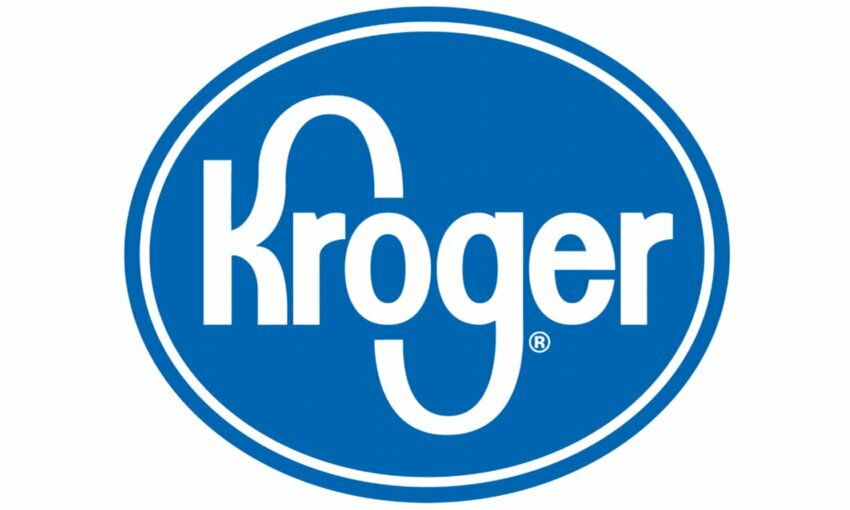 (Credit: Pixabay)
(Credit: Pixabay)The Kroger Company operates supermarkets and multi-department stores throughout the United States. The Cincinnati-based company has 2,720 grocery stories in 35 states — operating under various names, including Ralphs and City Market. Kroger — as it is known — is the largest national supermarket by revenue.
Its mission is sustainability, given its role across the food system. To that end, it is strengthening its commitment to the climate and packaging. Its goals are aligned with Science Based Targets initiative and support a 1.5°C climate scenario. Kroger is also setting targets for its suppliers.
Kroger is creating sustainable packaging goals, which include 100% recyclable, reusable, and compostable Our Brands packaging by 2030. It zeroes in on fresh food products, health, beauty, household supplies, and cleaning items, and the company says it is about 40% of the way there now.
"These commitments express Kroger's aspiration to make affordable fresh food even more accessible while advancing positive impacts for our communities and the planet,” said Keith Dailey, Kroger's group vice president of corporate affairs and chief sustainability officer. “Our progress and commitments reflect our efforts to operationalize and integrate ESG performance into lines of business and develop a shared-value framework that creates positive outcomes for all stakeholders.”
Some highlights:
“Kroger’s ESG strategy is the next evolution of a journey that started decades ago with energy efficiency and waste reduction initiatives,” says the company’s ESG report.
The company started reducing its carbon impact in 2006, primarily by investing in energy efficiency measures, renewable energy, and refrigerant technologies. It knows it can do more to mitigate emissions from its extensive portfolio of stores, plants, and warehouses — and from its complex web of suppliers.
“To help prepare for and manage a variety of risk scenarios, including natural disasters and business disruptions to our supply chains, we maintain more than 200 business continuity plans,” it says. Indeed, providing food is its mainstay; therefore, Kroger has a keen interest in climate matters such as drought. "We have installed technologies and processes to ensure our stores, plants, and distribution network can respond quickly and remain operational.”
It updated its climate goals in 2020 to reduce absolute greenhouse gas emissions from operations by 30% by 2030 against a 2018 baseline. It is therefore actively monitoring and managing its electricity and natural gas use — with an eye on cutting its energy consumption and limiting its emissions. It uses the EnergyCap tool to track its usage and the ENERGY STAR platform to benchmark its energy consumption against industry averages. Kroger has 821 stores that meet ENERGY STAR standards.
It also has 13 manufacturing plants that have installed an energy management system, providing real-time data to allow for the immediate correction of anomalies. That information is analyzed to determine where Kroger can cut its energy consumption. For example, in 2020, it continued to place glass doors on open refrigerated cases in our stores, which saves an average of 225,000 kWh of electricity and 16,000 therms of natural gas per store annually. It also continued to upgrade to LED in its frozen food cases, which can save 22,000 kWh of electricity per case annually.
“As a result of our continued commitment to increasing energy efficiency in our stores, we have accumulated avoided electricity of more than 50% compared to our baseline consumption in 2000.” The company says.
It’s also moving toward more fuel-efficient logistics. To that end, it is replacing its older truck with newer models. It also replaced more than 550 tractors and refrigerated trailers, and in 2021, it will add more than 800 new tractors, trucks, and other vehicles to our fleet. From 2015 to 2021, it says its fuel efficiency increased by 18%. Also, Kroger is installing fast chargers at some of its stores for its electric vehicle customers.
And Kroger is relying more on renewable energy, installing solar arrays at 15 facilities and operating two facilities equipped with anaerobic digestion technology. It also enters into power purchase agreements — long-term contracts to buy more green power.
Refrigeration is also crucial in the company’s efforts to reduce emissions. It, therefore, monitors leaks, replaces aging refrigerators, and manages its inventory to reduce waste. For 2020, set a goal to minimize refrigeration leaks by 10%, noting it achieved this aim.
Overall, Kroger says it reduced its Scopes 1 and 2 emissions — energy tied to its operations and bought from others fell by 8.6% between 2019 and 2020; 11.6% for Scope 2. Its Scope 3 emissions linked to its supply chain dropped by 30% — a result linked mainly to Covid and less travel. It built on its progress in 2021, achieving a 9.1% reduction in greenhouse gas emissions from a 2018 baseline.
Going forward, the goals are:
Moreover, “We use natural resources in everything we do, from consuming energy, water, and commodities to producing waste in our operations and value chain,” Kroger says. “As a responsible business, we conserve these resources to help safeguard people and our planet. We remain committed to diverting 90% or more of waste from landfill to achieve zero-waste status and to identifying alternative methods of waste management.”